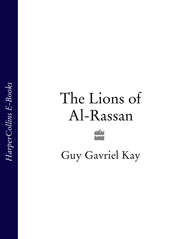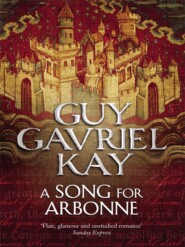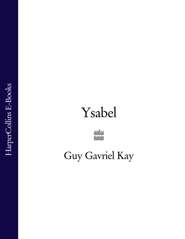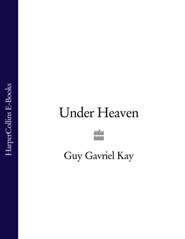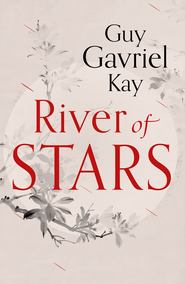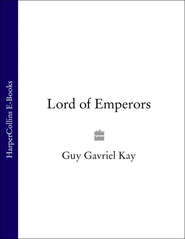По всем вопросам обращайтесь на: info@litportal.ru
(©) 2003-2025.
✖
Tigana
Автор
Год написания книги
2018
Настройки чтения
Размер шрифта
Высота строк
Поля
The grief in that accusation clenched itself like a fist within Devin, more tightly than Baerd could ever have known. Than anyone could have known. For no one since Marra had died really knew what memory meant to Devin d’Asoli: the way in which it had come to be the touchstone of his soul.
Memory was talisman and ward for him, gateway and hearth. It was pride and love, shelter from loss: for if something could be remembered it was not wholly lost. Not dead and gone forever. Marra could live; his dour, stern father hum a cradle song to him. And because of this, because this was at the heart of what Devin was, the old vengeance of Brandin of Ygrath smashed into him that night as if it had been newly wrought, pounding through to the vulnerable centre of how Devin saw and dealt with the world, and it cut him like a fresh and killing wound.
With an effort he forced himself to steadiness, willing the concentration that would allow him to remember this. All of this. Which seemed to matter more than ever now. Especially now, with the echo of Baerd’s last terrible words fading in the night. Devin looked at the blond-haired man with the leather bands across his brow and about his neck, and he waited. He had been quick as a boy; he was a clever man. He understood what was coming; it had fallen into place.
Older by far than he had been only an hour ago, Devin heard Alessan murmur from behind him, ‘The cradle song I heard you playing was from that last province, Devin. A song of the city of towers. No one not of that place could have learned that tune in the way you told me you did. It is how I knew you as one of us. It is why I did not stop you when you followed Catriana. I left it to Morian to see what might lie beyond that doorway.’
Devin nodded, absorbing this. A moment later he said, as carefully as he could, ‘If this is so, if I have properly understood you, then I should be one of the people who can still hear and remember the name that has been . . . otherwise taken away.’
Alessan said, ‘It is so.’
Devin discovered that his hands were shaking. He looked down at them, concentrating, but he could not make them stop.
He said, ‘Then this is something that has been stolen from me all my life. Will you . . . give it back to me? Will you tell me the name of the land where I was born?’
He was looking at Baerd by starlight, for Ilarion too was gone now, over west beyond the trees. Alessan had said it was Baerd’s to tell. Devin didn’t know why. In the darkness they heard the trialla one more time, a long, descending note, and then Baerd spoke, and for the first time in his days Devin heard someone say:
‘Tigana.’
Within him the bell he had been hearing, as if in a dream of unknown summer fields, fell silent. And within that abrupt, absolute inner stillness a surge of loss broke over him like an ocean wave. And after that wave came another, and then a third—the one bearing love and the other a heart-deep pride. He felt a strange light-headed dizzying sensation as of a summons rushing along the corridors of his blood.
Then he saw how Baerd was staring at him. Saw his face rigid and white, the fear transparent even by starlight, and something else as well: bitterest thirst—an aching, deprived hunger of the soul. And then Devin understood, and gave to the other man the release he needed.
‘Thank you,’ Devin said. He didn’t seem to be trembling any more. Around a difficult thickness in his throat he went on, for it was his turn now, his test:
‘Tigana. Tigana. I was born in the province of Tigana. My name . . . my true name is Devin di Tigana bar Garin.’
Even as he spoke, something akin to glory blazed in Baerd’s face. The fair-haired man squeezed his eyes tightly shut as if to hold that glory in, to keep it from escaping into the dispersing dark, to clutch it fiercely to his need. Devin heard Alessan draw an unsteady breath, and then, surprised, he felt Catriana touch his shoulder and then withdraw her hand.
Baerd was lost in a place beyond speech. It was Alessan who said, ‘That is one of the two names taken away, and the deepest. Tigana was our province and the name of the royal city by the sea. The fairest city under Eanna’s lights you would have heard it named. Or perhaps, perhaps only the second most fair.’
A thread of something that seemed to genuinely long to become laughter was in his voice. Laughter and love together. For the first time Devin turned to look up at him.
Alessan said, ‘If you were to have spoken with those from inland and south, in the city where the River Sperion, descending from the mountain, begins its run westward to find the sea, you would have heard it said that second way. For we were always proud, and there was always rivalry between the two cities.’
In the end, hard as he tried, his voice could only carry loss.
‘You were born in that inland city, Devin, and so was I. We are children of that high valley and of the silver running of that mountain river. We were born in Avalle. In Avalle of the Towers.’
There was music in Devin’s mind again, with that name, but this time it was different from the bells he’d heard before. This time it was a music that took him back a long way, all the way to his father and his childhood.
He said, ‘You do know the words then, don’t you?’
‘Of course I do,’ said Alessan gently.
‘Please?’ Devin asked.
But it was Catriana who answered him, in the voice a young mother might have used, rocking her child to sleep on an evening long ago:
Springtime morning in Avalle
And I don’t care what the priests say:
I’m going down to the river today
On a springtime morning in Avalle.
When I’m all grown up, come what may,
I’ll build a boat to carry me away
And the river will take it to Tigana Bay
And the sea even further from Avalle.
But wherever I wander, by night or by day,
Where water runs swiftly or high trees sway,
My heart will carry me back and away To
a dream of the towers of Avalle.
A dream of my home in Avalle.
The sweet sad words to the tune he’d always known drifted down to Devin, and with them came something else. A sense of loss so deep it almost drowned the light grace of Catriana’s song. No breaking waves now, or trumpets along the blood: only the waters of longing. A longing for something taken away from him before he’d even known it was his—taken so completely, so comprehensively he might have lived his whole life through without ever knowing it was gone.
And so Devin wept as Catriana sang. Small boys, young-looking for their age, learned very early in northern Asoli how risky it was to cry where someone might see. But something too large for Devin to deal with had overtaken him in the forest tonight.
If he understood properly what Alessan had just said, this song was one his mother would have sung to him.
His mother whose life had been ripped away by Brandin of Ygrath. He bowed his head, though not to shield the tears, and listened as Catriana finished that bitter-sweet cradle song: a song of a child defying orders and authority, even when young, who was self-reliant enough to want to build a ship alone and brave enough to want to sail it into the wideness of the world, never turning back. Nor ever losing or forgetting the place where it all began.
A child very much as Devin saw himself.
Which was one of the reasons he wept. For he had been made to lose and forget those towers, he’d been robbed of any dream he himself might ever have had of Avalle. Or Tigana on its bay.
So his tears followed one another downward in darkness as he mourned his mother and his home. And in the shadows of that wood not far from Astibar those two griefs fused to each other in Devin and became welded in the forge of his heart with what memory meant to him and the loss of memory: and out of that blazing something took shape in Devin that was to change the running of his life line from that night.
He dried his eyes on his sleeve and looked up. No one spoke. He saw that Baerd was looking at him. Very deliberately Devin held up his left hand, the hand of the heart. Very carefully he folded his third and fourth fingers down so that what showed was a simulacrum of the shape of the Peninsula of the Palm.
The position for taking an oath.
Baerd lifted his right hand and made the same gesture. They touched fingertips together, Devin’s small palm against the other man’s larger, calloused one.
Devin said, ‘If you will have me I am with you. In the name of my mother who died in that war I swear I will not break faith with you.’
‘Nor I with you,’ said Baerd. ‘In the name of Tigana gone.’






